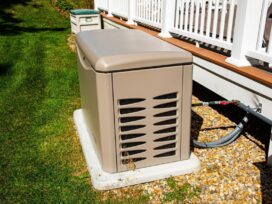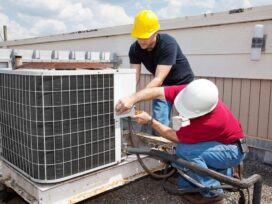
How to Get Your HVAC System Ready for Extreme Weather?
When the weather turns extreme, your HVAC system is essential in keeping you and your family comfortable. However, if you haven’t properly prepared it for severe weather conditions, it may not be able to function effectively. Here are some tips to help you get your HVAC system ready for extreme weather.
1. Clean or Replace Air Filters
One of the simplest and most effective ways to prepare your HVAC system for severe weather is by cleaning or replacing its air filters. Dirty air filters can cause a range of problems, including reduced airflow and increased energy usage. Additionally, knowing the types of HVAC systems and their benefits can help you choose the right air filter for your system and keep it in top working condition.
To avoid this problem, make sure you clean or replace your air filters before the onset of severe weather conditions. This will help ensure that your HVAC system operates efficiently and effectively throughout the duration of the storm.
2. Check Your Thermostat
Another important step in preparing your HVAC system for severe weather is checking your thermostat. Make sure that it is functioning correctly and set at an appropriate temperature. During periods of extreme heat or cold, you may need to adjust the temperature settings on your thermostat accordingly to keep up with changing weather conditions.
If you have a programmable thermostat, consider setting up pre-programmed settings that will automatically adjust based on predicted changes in weather patterns. This can help reduce energy consumption and save money on utility bills during times when energy usage tends to spike.
3. Inspect Your Ductwork
Your ductwork plays a critical role in ensuring that conditioned air from your HVAC system reaches all parts of your home evenly and efficiently. However, if there are leaks or other issues with the ductwork itself, it can lead to uneven heating or cooling and increased energy usage.
To prepare for severe weather conditions, inspect all visible ductwork in your home for signs of damage or wear and tear. If necessary, seal any leaks or cracks with specialized duct tape or other materials designed specifically for this purpose.
4. Schedule Preventative Maintenance
Finally, make sure to schedule regular preventative maintenance for your HVAC system. A qualified technician for HVAC service in Atlanta will be able to inspect all of the components of your system and identify any potential problems before they become larger issues. This can help you avoid costly repairs or replacements down the road and keep your system running optimally during severe weather.
To Conclude
Preparing your HVAC system for extreme weather conditions can be an important part of ensuring that you and your family remain comfortable during the storm. The tips outlined above can help you make sure your system is ready to meet the challenge. Clean or replace air filters, check your thermostat, inspect your ductwork, and schedule regular preventative maintenance to ensure that your HVAC system is ready for extreme weather. Thank you for reading!







